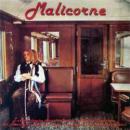Georges Brassens: Marquise
Versione italiana di Giuseppe Setaro

MARQUISE
(Continues)
(Continues)
Contributed by Krzysiek Wrona 2016/2/16 - 22:49
Tráva
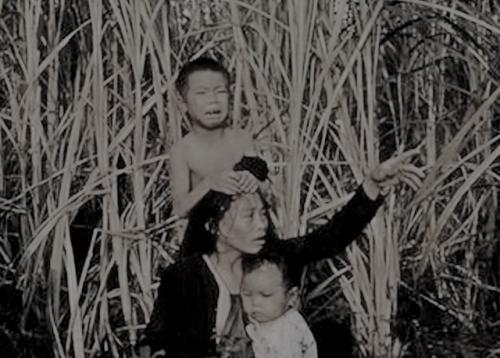
d’après la version italienne de Stanislava
d’une chanson tchèque – Tráva – Karel Kryl – 1965
Une chanson écrite par Kryl pendant son service militaire. On la présente comme une chanson contre la guerre en général, mais selon moi, dans la première strophe se trouve même une référence concrète à la guerre en Vietnam qui était en cours dans ces années-là ; y me fait penser l’image des « morti là dietro il canneto » [Comme on le verra la version française dit « là-bas dans les bambous » rejoignant sans barguigner l’avis de l'auteure de la version italienne]. Rákosí est une plante semblable à la canne de bambou qui est devenue une métaphore pour les Vietnamiens (peut-être seulement en tchèque ? ? ? je ne le sais pas…), apparemment justement aux temps de la guerre : certains la font remonter aux chapeaux ou aux maisons faites de ces plantes, d’autres soutiennent que les soldats vietnamiens se... (Continues)
d’une chanson tchèque – Tráva – Karel Kryl – 1965
Une chanson écrite par Kryl pendant son service militaire. On la présente comme une chanson contre la guerre en général, mais selon moi, dans la première strophe se trouve même une référence concrète à la guerre en Vietnam qui était en cours dans ces années-là ; y me fait penser l’image des « morti là dietro il canneto » [Comme on le verra la version française dit « là-bas dans les bambous » rejoignant sans barguigner l’avis de l'auteure de la version italienne]. Rákosí est une plante semblable à la canne de bambou qui est devenue une métaphore pour les Vietnamiens (peut-être seulement en tchèque ? ? ? je ne le sais pas…), apparemment justement aux temps de la guerre : certains la font remonter aux chapeaux ou aux maisons faites de ces plantes, d’autres soutiennent que les soldats vietnamiens se... (Continues)
HERBE
(Continues)
(Continues)
Contributed by Marco Valdo M.I. 2016/2/16 - 22:46
Tremori antichi
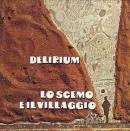
Mag Meg sarebbe Mario Magenta, ma non è sicuramente lui l’autore della musica perchè era un dirigente della Fonit Cetra e firmava al posto degli artisti non iscritti alla SIAE.
E’ più probabile che il compositore sia stato Martin Frederick Grice, che era appena subentrato a Ivano Fossati, il quale aveva scelto la carriera solista dopo “Dolce Acqua” del 1971.
Invece La Luce sta per Mauro la Luce, il paroliere storico dei Delirium.
E’ più probabile che il compositore sia stato Martin Frederick Grice, che era appena subentrato a Ivano Fossati, il quale aveva scelto la carriera solista dopo “Dolce Acqua” del 1971.
Invece La Luce sta per Mauro la Luce, il paroliere storico dei Delirium.
Bernart Bartleby 2016/2/16 - 19:13
Ballad of William White
[1966]
Parole di Katherine Faith Macky (1921-2006), conosciuta come Willow Macky, cantautrice neozelandese
Sulla melodia dell’ottocentesca The Wild Colonial Boy
Canzone inclusa nella prima edizione del “The Vietnam Songbook”, realizzata nel 1969 da Barbara Dane ed Irwin Silber (1925-2010), editore, scrittore, militante socialista e cofondatore “Sing Out!”
Testo trovato sul sito Raymond’s Folk Song Page curato da Raymond Crooke, che di ogni canzone offre anche una sua cover. Pure l’introduzione che segue è sua:
A few days ago I put up a song called "The Ballad of Bill White", by Glen Tomasetti, about an Australian teacher who was jailed as a conscientious objector to the Vietnam war. This is another song about the same story, written by a New Zealander, to the tune of "The Wild Colonial Boy", and published in Barbara Dane's and Irwin Silber's "The Vietnam Songbook" (1969). Macky is quoted... (Continues)
Parole di Katherine Faith Macky (1921-2006), conosciuta come Willow Macky, cantautrice neozelandese
Sulla melodia dell’ottocentesca The Wild Colonial Boy
Canzone inclusa nella prima edizione del “The Vietnam Songbook”, realizzata nel 1969 da Barbara Dane ed Irwin Silber (1925-2010), editore, scrittore, militante socialista e cofondatore “Sing Out!”
Testo trovato sul sito Raymond’s Folk Song Page curato da Raymond Crooke, che di ogni canzone offre anche una sua cover. Pure l’introduzione che segue è sua:
A few days ago I put up a song called "The Ballad of Bill White", by Glen Tomasetti, about an Australian teacher who was jailed as a conscientious objector to the Vietnam war. This is another song about the same story, written by a New Zealander, to the tune of "The Wild Colonial Boy", and published in Barbara Dane's and Irwin Silber's "The Vietnam Songbook" (1969). Macky is quoted... (Continues)
There was a young Australian boy, his name was William White.
(Continues)
(Continues)
Contributed by Bernart Bartleby 2016/2/16 - 15:54
The Ballad of Bill White
[1968]
Parole e musica di Glen Tomasetti (1929-2003)
Il lato A di un 45” di questa oggi misconosciuta cantautrice australiana che negli anni 60 fu - prima ancora di Eric Bogle - la voce più importante contro il coinvolgimento dell’Australia nella guerra in Vietnam.
Testo trascritto da Raymond Crooke e contribuito – insieme alla cover - sul suo bel sito Raymond’s Folk Song Page. Anche l’introduzione che segue è di Raymond Crooke, cui il disco della Tomasetti fu regalato da uno zio quando era ragazzo.
Finora era stato possibile reperire in Rete solo il testo del brano sul lato B, The Army’s Appeal to Mothers
This song was released on an EP during the Vietnam war. The B side featured two songs, the better of which is the hard-hitting "The Army’s Appeal to Mothers", which was published in Barbara Dane's and Irwin Silber's "The Vietnam Songbook" (1969). However, this song, about a teacher... (Continues)
Parole e musica di Glen Tomasetti (1929-2003)
Il lato A di un 45” di questa oggi misconosciuta cantautrice australiana che negli anni 60 fu - prima ancora di Eric Bogle - la voce più importante contro il coinvolgimento dell’Australia nella guerra in Vietnam.
Testo trascritto da Raymond Crooke e contribuito – insieme alla cover - sul suo bel sito Raymond’s Folk Song Page. Anche l’introduzione che segue è di Raymond Crooke, cui il disco della Tomasetti fu regalato da uno zio quando era ragazzo.
Finora era stato possibile reperire in Rete solo il testo del brano sul lato B, The Army’s Appeal to Mothers
This song was released on an EP during the Vietnam war. The B side featured two songs, the better of which is the hard-hitting "The Army’s Appeal to Mothers", which was published in Barbara Dane's and Irwin Silber's "The Vietnam Songbook" (1969). However, this song, about a teacher... (Continues)
In New South Wales there lives a man, a teacher young and true,
(Continues)
(Continues)
Contributed by Bernart Bartleby 2016/2/16 - 15:05
The Conscription Ramp
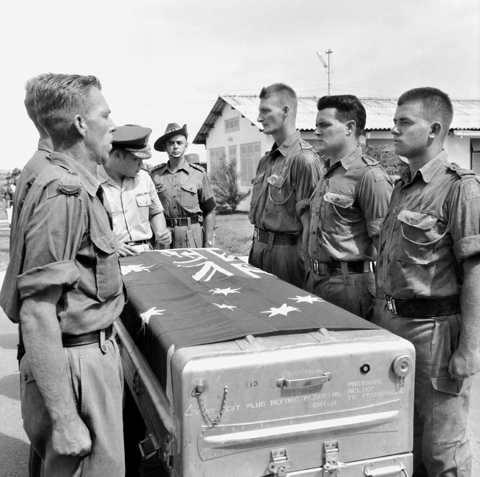
[1966]
Parole di Gary Shearston
La melodia è un adattamento della popolare inglese “The Derby Ram”
Nell’album intitolato “Gary Shearston Sings His Songs”
Testo trovato su YouTube come trascritto dal contributore, Artemis Fowl.
Canzone contro la coscrizione miliare voluta dal governo Australiano per sostenere la guerra americana in Vietnam.
Spesso infatti ci si dimentica che alcuni paesi mandarono in Indocina contingenti di soldati a sostegno degli USA. L’Australia, con 7.000 uomini, fu seconda soltanto alla Corea del Sud (48.000)…
“Perhaps this song, written a week after the announcement of conscription, anticipated the political and moral debates that were to come throughout Australia in following months. The tune is adapted from one of the fairly numerous Australian versions of an English folk song, The Derby Ram.”
(dalle note di copertina riportate sul sito dell’autore)
Parole di Gary Shearston
La melodia è un adattamento della popolare inglese “The Derby Ram”
Nell’album intitolato “Gary Shearston Sings His Songs”
Testo trovato su YouTube come trascritto dal contributore, Artemis Fowl.
Canzone contro la coscrizione miliare voluta dal governo Australiano per sostenere la guerra americana in Vietnam.
Spesso infatti ci si dimentica che alcuni paesi mandarono in Indocina contingenti di soldati a sostegno degli USA. L’Australia, con 7.000 uomini, fu seconda soltanto alla Corea del Sud (48.000)…
“Perhaps this song, written a week after the announcement of conscription, anticipated the political and moral debates that were to come throughout Australia in following months. The tune is adapted from one of the fairly numerous Australian versions of an English folk song, The Derby Ram.”
(dalle note di copertina riportate sul sito dell’autore)
As I was walking down the street while on my twentieth birthday-oh!
(Continues)
(Continues)
Contributed by Bernart Bartleby 2016/2/16 - 14:10
Song Itineraries:
War in Viet Nam as seen from Italy and from the rest of the world
Il bombarolo
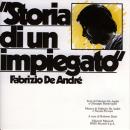
Dal blog Fabrizio de André in English
Upon his return to the dream, the worker has the clear idea of how to vent his rage: make a bomb and launch it against the powers that have disappointed him. According to the liner notes: "The worker knows what to do, where to go, who to hit and why. He goes straight to the Parliament to throw a real bomb and to kill real people, but his ability was only a dream: the bomb rolls down towards a magazine kiosk. His true defeat might be in seeing on all the newspaper covers the face of his fiancée, who decided to leave him after his actions. The bomber remains truly alone." - Dennis Criteser
THE BOMBER
(Continues)
(Continues)
Contributed by Riccardo Venturi 2016/2/16 - 08:44
Sogno numero due

Dal blog Fabrizio de André in English
The worker continues to dream, but now in court presumably after having been arrested for throwing the bomb. But the judge informs him that the bourgeois powers are in the know of his acts, and accusations of murder are transformed into thanks for having eliminated old remnants that were bothering power itself, which now has found another way of governing. The worker correctly used the instruments of law, and his gesture was nothing other than a search for personal power. He is welcomed, and his own liberty is placed at his disposal. - Dennis Criteser
DREAM #2
(Continues)
(Continues)
Contributed by Riccardo Venturi 2016/2/16 - 08:38
Hemmige
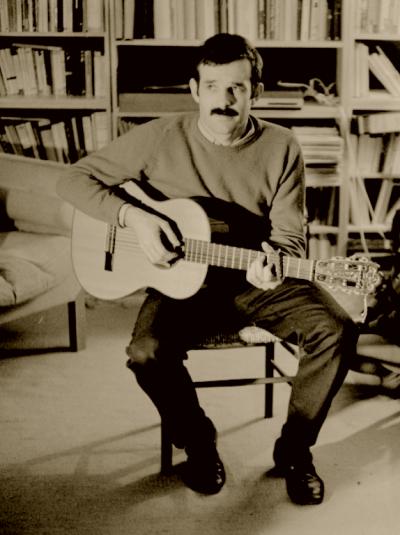
d’après la version italienne de Rob le Svizzero – Rob le Suisse d’une
Chanson en Bärndüdsch (alémanique bernois) – Hemmige – Mani Matter – 1970
Une chanson tellement fameuse qu’elle a été reprise par la plupart des principaux chanteurs suisses. On notera particulièrement l’interprétation de Stephan Eicher
Quand Eicher la chante en Suisse romande de langue française, le public est désormais capable de la chanter dans l’impossible allemand bernois.
Décidément, R.V. a raison quand il affirme que le Schwyzertüütsch, et a fortiori, le Bärndüdsch, version bernoise du précédent, est une langue impossible ou presque qui n’est pas né dedans.
On connaît ça ailleurs, dit Lucien l’âne en souriant des yeux. Ce n’est pas spécifique aux langues suisses alémaniques. En fait, c’est même assez général. Que sait-on, toi et moi de la quasi-totalité des 142 langues utilisées jusqu’à présent dans les Chansons... (Continues)
Chanson en Bärndüdsch (alémanique bernois) – Hemmige – Mani Matter – 1970
Une chanson tellement fameuse qu’elle a été reprise par la plupart des principaux chanteurs suisses. On notera particulièrement l’interprétation de Stephan Eicher
Quand Eicher la chante en Suisse romande de langue française, le public est désormais capable de la chanter dans l’impossible allemand bernois.
Décidément, R.V. a raison quand il affirme que le Schwyzertüütsch, et a fortiori, le Bärndüdsch, version bernoise du précédent, est une langue impossible ou presque qui n’est pas né dedans.
On connaît ça ailleurs, dit Lucien l’âne en souriant des yeux. Ce n’est pas spécifique aux langues suisses alémaniques. En fait, c’est même assez général. Que sait-on, toi et moi de la quasi-totalité des 142 langues utilisées jusqu’à présent dans les Chansons... (Continues)
APPRÉHENSIONS
(Continues)
(Continues)
Contributed by Marco Valdo M.I. 2016/2/15 - 22:59
Non più andrai farfallone amoroso

Scusate, vorrei soltanto sapere se le mie intuizioni incirca il significato che sia iscritto nel nome del principale e eponimo protagonista dell'opera sono giustificate. I dizionari dicono barbiere... cosa rasava allora???
Se ho ragione, quel francese era un genio, allora : D
Saludski
https://www.youtube.com/watch?v=TLb6L2KrQYQ
Se ho ragione, quel francese era un genio, allora : D
Saludski
https://www.youtube.com/watch?v=TLb6L2KrQYQ
krzyś 2016/2/15 - 21:26
The Pogues & Kirsty MacColl: Fairytale of New York
Traduzione di Angelo Branduardi da "Così è se mi pare" (2010)

Voce femminile: Fawzia Selama
FAVOLA DI NATALE A NEW YORK
(Continues)
(Continues)
Contributed by dq82 2016/2/15 - 14:01
Taita Atahualpa
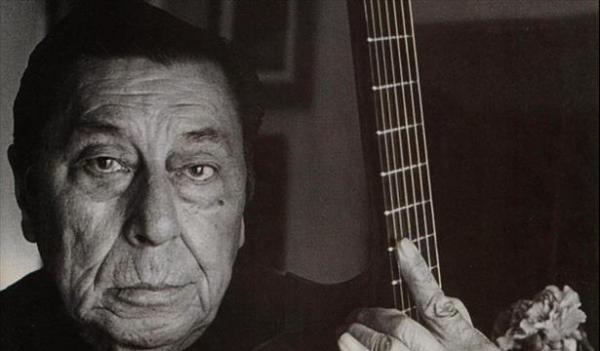
[1987?]
Parole e musica di Ángel Parra
Nel disco dal vivo “Ángel Parra en Alemania” pubblicato nel 1988.
Una canzone, precisamente un “huayno” dedicato al grande Atahualpa Yupanqui che nel 1992 Parra ebbe la fortuna di cantare proprio davanti al suo maestro, nel corso di un concerto congiunto a Zurigo. Era l’8 febbraio del 1992 e il payador argentino si sarebbe spento poche settimane dopo, il 23 maggio.
Quello con Parra fu “El último recital” di Atahualpa Yupanqui.
Parole e musica di Ángel Parra
Nel disco dal vivo “Ángel Parra en Alemania” pubblicato nel 1988.
Una canzone, precisamente un “huayno” dedicato al grande Atahualpa Yupanqui che nel 1992 Parra ebbe la fortuna di cantare proprio davanti al suo maestro, nel corso di un concerto congiunto a Zurigo. Era l’8 febbraio del 1992 e il payador argentino si sarebbe spento poche settimane dopo, il 23 maggio.
Quello con Parra fu “El último recital” di Atahualpa Yupanqui.
Taita Atahualpa me lo enseñó:
(Continues)
(Continues)
Contributed by Bernart Bartleby 2016/2/14 - 22:12
Bella Ciao
Anonymous

A Bologna , nella biblioteca comunale delle Lame , in via Marco Polo , fuori Porta Lame , dopo l'anno 2000 e' stato fondato l' imponente archivio storico-musicale del "Canzoniere delle Lame". E' visitabile solo su appuntamento. Contiene circa duemila libri , dischi , cassette , documenti , ecc. sul tema "musica politica di tutto il mondo". Contiene anche varie versioni di "Bella Ciao", raccolte ai festival mondiali della canzone politica che si tengono ogni anno alla fine di febbraio a Berlino Est , con gruppi di tutto il mondo. Questo festival esiste tuttora. Info presso la biblioteca comunale delle Lame di Bologna.
ginestri gianfranco del canzoniere delle lame di bologna 2016/2/14 - 22:08
El forastero
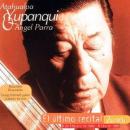
Sul nuovo sito della Fundación Atahualpa Yupanqui il testo de "El Forastero" compare nella raccolta di poesie "Payador Perseguido" del 1965 con il titolo "Hermanito del mundo".
In ogni caso, la canzone andrebbe datata almeno al 1965, non certo al 1992...
In ogni caso, la canzone andrebbe datata almeno al 1965, non certo al 1992...
Bernart Bartleby 2016/2/14 - 21:37
Dulce Et Decorum Est

DULCE ET DECORUM EST
(Continues)
(Continues)
Contributed by Bartleby + CCG Staff 2016/2/14 - 16:39
Fly Over
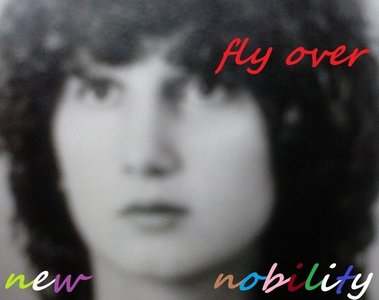
imagine a time, where there's no war and enter a place near the heart
(Continues)
(Continues)
Contributed by Zoran Krga 2016/2/14 - 09:07
I'm Your Captain (Closer to Home)

Una delle più famose (e belle) canzoni dei Grand Funk Railroad, racconta del capitano di una nave che, nel corso di un viaggio, è caduto ammalato e, forse nel delirio della febbre, teme di perdere il comando, che la sua sua nave gli sia sottratta, o che addirittura la sua ciurma si stia per ammutinare, o che l’imbarcazione sia attaccata da nemici, da pirati... Teme, in definitiva, di essere alla fine del suo viaggio terreno e di non poter riportare la pelle in salvo a casa...
Una canzone onirica o, meglio, lisergica, come era quasi d’obbligo in quegli anni...
E infatti molti ne hanno interpretato il significato come un “viaggio allucinante”, moderna Odissea omerica scaturita dall’LSD... Altri invece hanno ritenuto che “I'm Your Captain” abbia a che fare con la guerra in Vietnam... Senza voler abbracciare l’interpretazione, a mio avviso molto forzata, che il capitano sia Nixon che stava... (Continues)
Una canzone onirica o, meglio, lisergica, come era quasi d’obbligo in quegli anni...
E infatti molti ne hanno interpretato il significato come un “viaggio allucinante”, moderna Odissea omerica scaturita dall’LSD... Altri invece hanno ritenuto che “I'm Your Captain” abbia a che fare con la guerra in Vietnam... Senza voler abbracciare l’interpretazione, a mio avviso molto forzata, che il capitano sia Nixon che stava... (Continues)
Bernart Bartleby 2016/2/13 - 23:42
I'm Afraid of Americans
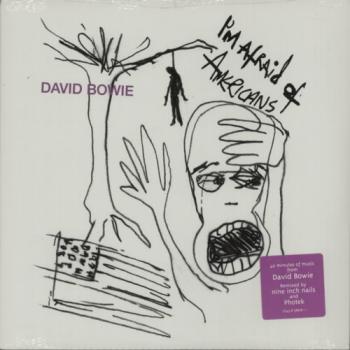
[1997]
Written by David Bowie and Brian Eno
Scritta da David Bowie e Brian Eno
Featuring: Nine Inch Nails
Single / Singolo [14.X.1997]
Album: Earthling
I'm Afraid of Americans è un singolo di David Bowie estratto dall'album Earthling nel 1997. La canzone, scritta da Bowie e da Brian Eno, fu originariamente realizzata durante le sessioni in studio di Bowie per l'album del 1995 1.Outside, ma non fu pubblicata fino al rough mix apparso nella colonna sonora del film Showgirls. Il brano fu infine edito nuovamente per l'inclusione in Earthling.
Bowie spiegò in questo modo il significato del brano, il cui titolo tradotto in italiano significa letteralmente "Ho paura degli americani":
« It's not as truly hostile about Americans as say Born in the U.S.A.: it's merely sardonic. I was traveling in Java when [its] first McDonald's went up: it was like, "for fuck's sake." The invasion by any... (Continues)
Written by David Bowie and Brian Eno
Scritta da David Bowie e Brian Eno
Featuring: Nine Inch Nails
Single / Singolo [14.X.1997]
Album: Earthling
I'm Afraid of Americans è un singolo di David Bowie estratto dall'album Earthling nel 1997. La canzone, scritta da Bowie e da Brian Eno, fu originariamente realizzata durante le sessioni in studio di Bowie per l'album del 1995 1.Outside, ma non fu pubblicata fino al rough mix apparso nella colonna sonora del film Showgirls. Il brano fu infine edito nuovamente per l'inclusione in Earthling.
Bowie spiegò in questo modo il significato del brano, il cui titolo tradotto in italiano significa letteralmente "Ho paura degli americani":
« It's not as truly hostile about Americans as say Born in the U.S.A.: it's merely sardonic. I was traveling in Java when [its] first McDonald's went up: it was like, "for fuck's sake." The invasion by any... (Continues)
Uh-uh-uh uh, uh, uh-uh uh-uh-uh
(Continues)
(Continues)
Contributed by Riccardo Venturi 2016/2/13 - 23:17
Vengeance et Mort – Till et Nelle (4)
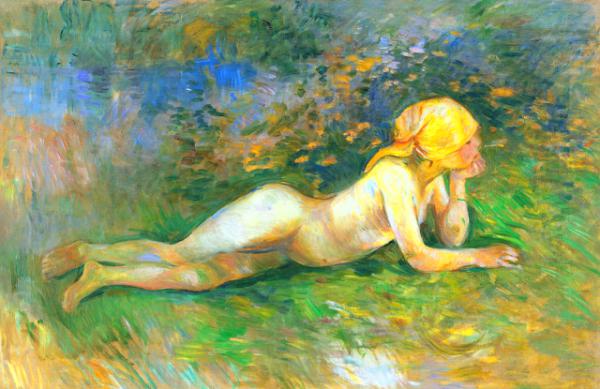
Vengeance et Mort – Till et Nelle (4)
Chanson française – Le Printemps – Till et Nelle (2) – Marco Valdo M.I. – 2016
Ulenspiegel le Gueux – 29
Opéra-récit en multiples épisodes, tiré du roman de Charles De Coster : La Légende et les aventures héroïques, joyeuses et glorieuses d’Ulenspiegel et de Lamme Goedzak au Pays de Flandres et ailleurs (1867).
(Ulenspiegel – I, LXXXV)
Cette numérotation particulière : (Ulenspiegel – I, I), signifie très exactement ceci :
Ulenspiegel : La Légende et les aventures héroïques, joyeuses et glorieuses d’Ulenspiegel et de Lamme Goedzak au Pays de Flandres et ailleurs, dans le texte de l’édition de 1867.
Le premier chiffre romain correspond au numéro du Livre – le roman comporte 5 livres et le deuxième chiffre romain renvoie au chapitre d’où a été tirée la chanson. Ainsi, on peut – si le cœur vous en dit – retrouver le texte originel et plein de détails... (Continues)
Chanson française – Le Printemps – Till et Nelle (2) – Marco Valdo M.I. – 2016
Ulenspiegel le Gueux – 29
Opéra-récit en multiples épisodes, tiré du roman de Charles De Coster : La Légende et les aventures héroïques, joyeuses et glorieuses d’Ulenspiegel et de Lamme Goedzak au Pays de Flandres et ailleurs (1867).
(Ulenspiegel – I, LXXXV)
Cette numérotation particulière : (Ulenspiegel – I, I), signifie très exactement ceci :
Ulenspiegel : La Légende et les aventures héroïques, joyeuses et glorieuses d’Ulenspiegel et de Lamme Goedzak au Pays de Flandres et ailleurs, dans le texte de l’édition de 1867.
Le premier chiffre romain correspond au numéro du Livre – le roman comporte 5 livres et le deuxième chiffre romain renvoie au chapitre d’où a été tirée la chanson. Ainsi, on peut – si le cœur vous en dit – retrouver le texte originel et plein de détails... (Continues)
Altesses divines, les cendres battent sur mon cœur.
(Continues)
(Continues)
Contributed by Marco Valdo M.I. 2016/2/13 - 18:38
Er soudarded zo gùisket é ru [Ar soudarded zo gwisket e ruz]
Max Ar Fur
![Er soudarded zo gùisket é ru [Ar soudarded zo gwisket e ruz]](img/upl/kazhdu.gif)
English translation by Richard Gwenndour
Piacenza (Plesañs), 13.2.2016
Piacenza (Plesañs), 13.2.2016
THE SOLDIERS ARE DRESSED IN RED
(Continues)
(Continues)
Contributed by Richar Gwenndour 2016/2/13 - 09:56
Fila la lana
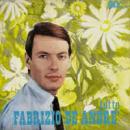
Dal blog Fabrizio de André in English
"Fila la lana" was presented as a translation of a popular medieval French song from the 15th century. In fact the French source song was "File la laine" composed by Robert Marcy in 1948, popularized by Jacque Douai in 1955. The War of Valois in De André's version is better known as the War of the Breton Succession (1341-1364). The original French version speaks of the "Monsieur of Malbrough" which refers to a 1709 battle in the War of the Spanish Succession depicted in one of the most famous of French folk songs, "Marlbrough s'en va-t-en guerre." - Dennis Criteser
SPIN THE WOOL
(Continues)
(Continues)
Contributed by Riccardo Venturi 2016/2/13 - 08:48
Girotondo

Dal blog Fabrizio de André in English
In "Girotondo," De Andrè marries the joyous melody of a popular song "Marcondiro'ndera" with the deadly serious theme of the possible annihilation of humankind through the use of nuclear weapons in war, intensified with the use of a chldren's chorus. After the success of "La canzone di Marinella," Italy's state television station Rai invited De Andrè often to sing his big hit. But De Andrè refused until he could choose what material to present. Among other songs, he chose "La guerra di Piero" and "Girotondo," anti-war anthems that reflected De Andrè's deeply held pacifism. - Dennis Criteser
RING-AROUND-THE-ROSIE
(Continues)
(Continues)
Contributed by Riccardo Venturi 2016/2/13 - 08:41
Coda di Lupo

Dal blog Fabrizio de André in English
Coda di lupo" must be understood in the context of the failure and dissolution of various protest movements in 1976 and 1977, including the Metropolitan Indians, anarchists who wore face paint, dressed like hippies, listened to rock music and enjoyed acid and weed, and who protested bourgeois values through urban guerilla activism, occupying universities, factories, etc.
Rimini grew out of De André's disappointments with the political events of the previous couple of years. In close collaboration with Massimo Bubola, a young 24-year-old who had just released his first album, De André explored several social and political themes, including abortion, homosexuality, and how the petty bourgeois attempted to move into the ranks of the powerful and rise above the political and social turmoil of the times. The music has more influence from American rock and... (Continues)
Coda di lupo" must be understood in the context of the failure and dissolution of various protest movements in 1976 and 1977, including the Metropolitan Indians, anarchists who wore face paint, dressed like hippies, listened to rock music and enjoyed acid and weed, and who protested bourgeois values through urban guerilla activism, occupying universities, factories, etc.
Rimini grew out of De André's disappointments with the political events of the previous couple of years. In close collaboration with Massimo Bubola, a young 24-year-old who had just released his first album, De André explored several social and political themes, including abortion, homosexuality, and how the petty bourgeois attempted to move into the ranks of the powerful and rise above the political and social turmoil of the times. The music has more influence from American rock and... (Continues)
TAIL OF THE WOLF
(Continues)
(Continues)
Contributed by Riccardo Venturi 2016/2/13 - 08:10
Papaoutai

(2013)
Album Racine carrée
Nel video viene mostrato un bambino che cerca di interagire con il padre (interpretato da Stromae) che siede su una poltrona con un'espressione che ricorda quella di un manichino mentre gli altri bambini danzano insieme ai propri padri. Nel finale il bambino si siede a fianco del padre assumendo la stessa rigida posizione. Il video ha ricevuto oltre 300 milioni di visualizzazioni ed è anche il video in lingua francese più visto di sempre su YouTube.
Il controverso significato del video rimase nascosto fino a quando Stromae in un'intervista dichiara che il video è una sorta di interpretazione della sua infanzia vissuta in mancanza del padre ucciso nel genocidio del Ruanda.
wikipedia
Album Racine carrée
Nel video viene mostrato un bambino che cerca di interagire con il padre (interpretato da Stromae) che siede su una poltrona con un'espressione che ricorda quella di un manichino mentre gli altri bambini danzano insieme ai propri padri. Nel finale il bambino si siede a fianco del padre assumendo la stessa rigida posizione. Il video ha ricevuto oltre 300 milioni di visualizzazioni ed è anche il video in lingua francese più visto di sempre su YouTube.
Il controverso significato del video rimase nascosto fino a quando Stromae in un'intervista dichiara che il video è una sorta di interpretazione della sua infanzia vissuta in mancanza del padre ucciso nel genocidio del Ruanda.
wikipedia
Dites-moi d'où il vient
(Continues)
(Continues)
2016/2/12 - 23:52
Song Itineraries:
1994: The Rwanda Genocide
سپاہی

“Jaane wale sipahi se poochho” is a song of whose history Sumangala’s experience is now a part. When American folk singer Pete Seeger came to India, he accompanied Sumangala on the guitar at a gathering where she sang this song. “He could feel its emotion though he didn’t understand the language.” Also, after the 1984 anti-Sikh riots, during a peace march at DU in a tense atmosphere, Safdar Hashmi asked Sumangala to sing this song. “This song taught me how music can have tremendously cathartic effects,” Sumangala told her IIC audience. “It completely transformed the atmosphere.”
Songs of Freedom. Sumangala Damodaran on reviving songs of IPTA. (*)
(*) L’Indian People’s Theatre Association è stata un’organizzazione culturale indiana legata al Partito comunista, attiva in tutta l’India negli anni 40, successivamente limitata ad alcune aree in Bengala e Chhattisgarh
Songs of Freedom. Sumangala Damodaran on reviving songs of IPTA. (*)
(*) L’Indian People’s Theatre Association è stata un’organizzazione culturale indiana legata al Partito comunista, attiva in tutta l’India negli anni 40, successivamente limitata ad alcune aree in Bengala e Chhattisgarh
Bernart Bartleby 2016/2/12 - 20:50
Le Printemps – Till et Nelle (3)
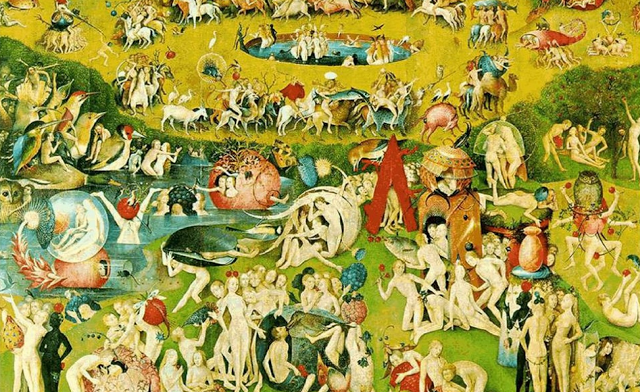
Le Printemps – Till et Nelle (3)
Chanson française – Le Printemps – Till et Nelle (2) – Marco Valdo M.I. – 2016
Ulenspiegel le Gueux – 28
Opéra-récit en multiples épisodes, tiré du roman de Charles De Coster : La Légende et les aventures héroïques, joyeuses et glorieuses d’Ulenspiegel et de Lamme Goedzak au Pays de Flandres et ailleurs (1867).
(Ulenspiegel – I, LXXXV)
Cette numérotation particulière : (Ulenspiegel – I, I), signifie très exactement ceci :
Ulenspiegel : La Légende et les aventures héroïques, joyeuses et glorieuses d’Ulenspiegel et de Lamme Goedzak au Pays de Flandres et ailleurs, dans le texte de l’édition de 1867.
Le premier chiffre romain correspond au numéro du Livre – le roman comporte 5 livres et le deuxième chiffre romain renvoie au chapitre d’où a été tirée la chanson. Ainsi, on peut – si le cœur vous en dit – retrouver le texte originel et plein de détails... (Continues)
Chanson française – Le Printemps – Till et Nelle (2) – Marco Valdo M.I. – 2016
Ulenspiegel le Gueux – 28
Opéra-récit en multiples épisodes, tiré du roman de Charles De Coster : La Légende et les aventures héroïques, joyeuses et glorieuses d’Ulenspiegel et de Lamme Goedzak au Pays de Flandres et ailleurs (1867).
(Ulenspiegel – I, LXXXV)
Cette numérotation particulière : (Ulenspiegel – I, I), signifie très exactement ceci :
Ulenspiegel : La Légende et les aventures héroïques, joyeuses et glorieuses d’Ulenspiegel et de Lamme Goedzak au Pays de Flandres et ailleurs, dans le texte de l’édition de 1867.
Le premier chiffre romain correspond au numéro du Livre – le roman comporte 5 livres et le deuxième chiffre romain renvoie au chapitre d’où a été tirée la chanson. Ainsi, on peut – si le cœur vous en dit – retrouver le texte originel et plein de détails... (Continues)
Les esprits de la terre
(Continues)
(Continues)
Contributed by Marco Valdo M.I. 2016/2/12 - 19:39
The Girl I Left Behind Me
Anonymous
L’introduzione inglese al brano è ripresa da Contemplator, o da uno dei tanti siti che lo citano.
Invito a leggere anche l’articolata introduzione di Cattia Salto sul suo sito Terre Celtiche, dove c’è anche la sua traduzione italiana del brano, che riporto:
Invito a leggere anche l’articolata introduzione di Cattia Salto sul suo sito Terre Celtiche, dove c’è anche la sua traduzione italiana del brano, che riporto:
LA RAGAZZA CHE HO LASCIATO DIETRO DI ME
(Continues)
(Continues)
Contributed by Bernart Bartleby 2016/2/12 - 15:12
Stornelli d’esilio
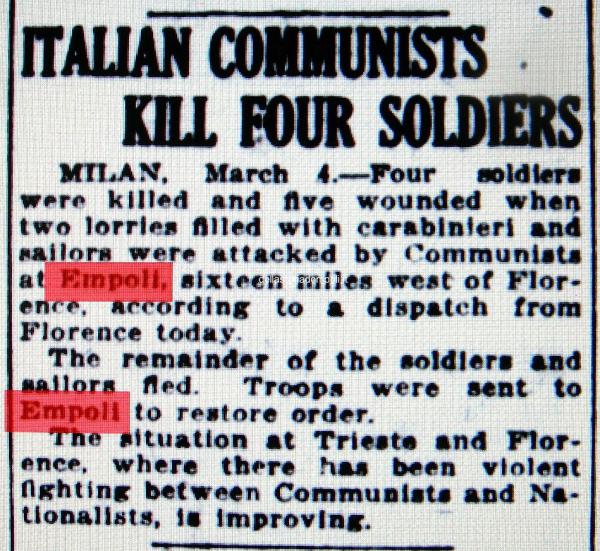
Strofe di anonimi autori antifascisti cantate sulla stessa aria degli “Stornelli d’esilio” di Pietro Gori, di cui è citato il ritornello:
Hanno ammazzato Giovanni Berta
dei fasci fiorentini [o capo degli assassini]
è stato vendicato
Spartaco Lavagnini.
La nostra patria è il mondo intero
la nostra legge è la libertà
e noi viviamo d'un sol pensiero
liberarla l'umanità.
Hanno ammazzato Giovanni Berta
figlio di pescecani
viva quel comunista
che gli pestò le mani!
La nostra patria è il mondo intero
la nostra legge è la libertà
e noi viviamo d'un sol pensiero
liberarla l'umanità.
1921, Annus Horribilis: a Livorno i socialisti si spaccavano e nasceva il Partito Comunista d’Italia; in Germania Adolf Hitler diventava presidente del NSDAP, il Partito Naz(ional-social)ista (dei Lavoratori Tedeschi); a Roma Mussolini fondava il Partito Nazionale Fascista, evoluzione dei Fasci di Combattimento... (Continues)
Hanno ammazzato Giovanni Berta
dei fasci fiorentini [o capo degli assassini]
è stato vendicato
Spartaco Lavagnini.
La nostra patria è il mondo intero
la nostra legge è la libertà
e noi viviamo d'un sol pensiero
liberarla l'umanità.
Hanno ammazzato Giovanni Berta
figlio di pescecani
viva quel comunista
che gli pestò le mani!
La nostra patria è il mondo intero
la nostra legge è la libertà
e noi viviamo d'un sol pensiero
liberarla l'umanità.
1921, Annus Horribilis: a Livorno i socialisti si spaccavano e nasceva il Partito Comunista d’Italia; in Germania Adolf Hitler diventava presidente del NSDAP, il Partito Naz(ional-social)ista (dei Lavoratori Tedeschi); a Roma Mussolini fondava il Partito Nazionale Fascista, evoluzione dei Fasci di Combattimento... (Continues)
Bernart Bartleby 2016/2/12 - 14:24
The Factory Slave
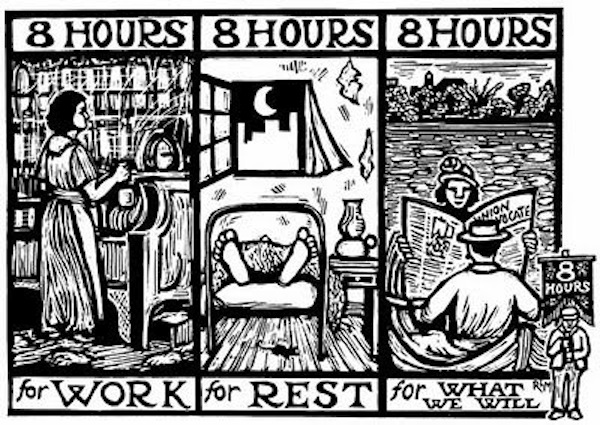
[1880s]
Parole di Thomas Phillips Thompson (1843-1933), inglese di nascita ma trapiantato in Canada, giornalista, militante del Knights of Labor e poi del Partito socialista. Autore del volumetto di canzoni “The labor reform songster” pubblicato nel 1892 sul “Journal of the Knights of Labor”
Sulla melodia della popolare “Way Down upon the Swanee River”
Parole di Thomas Phillips Thompson (1843-1933), inglese di nascita ma trapiantato in Canada, giornalista, militante del Knights of Labor e poi del Partito socialista. Autore del volumetto di canzoni “The labor reform songster” pubblicato nel 1892 sul “Journal of the Knights of Labor”
Sulla melodia della popolare “Way Down upon the Swanee River”
Toiling amid the smoke and clamor
(Continues)
(Continues)
Contributed by Bernart Bartleby 2016/2/12 - 10:43
Song Itineraries:
The War of Labour: Emigration, Immigration, Exploitation, Slavery
×
![]()


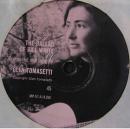
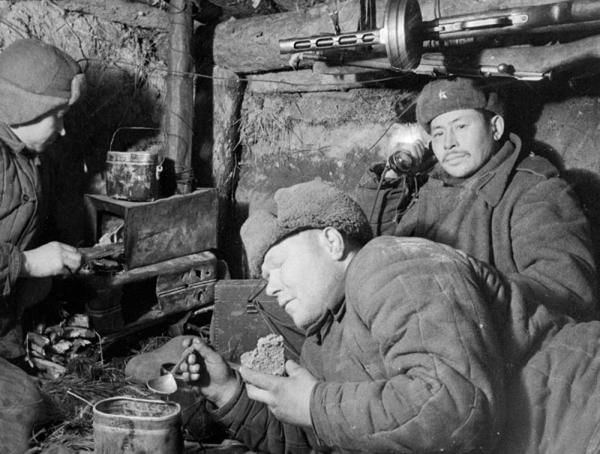
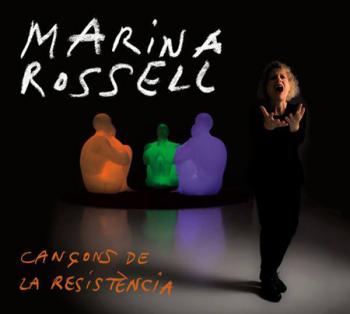

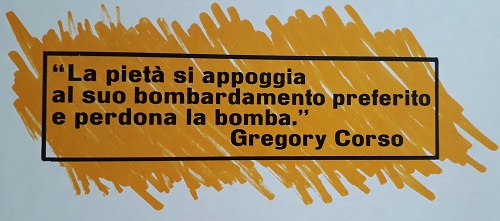
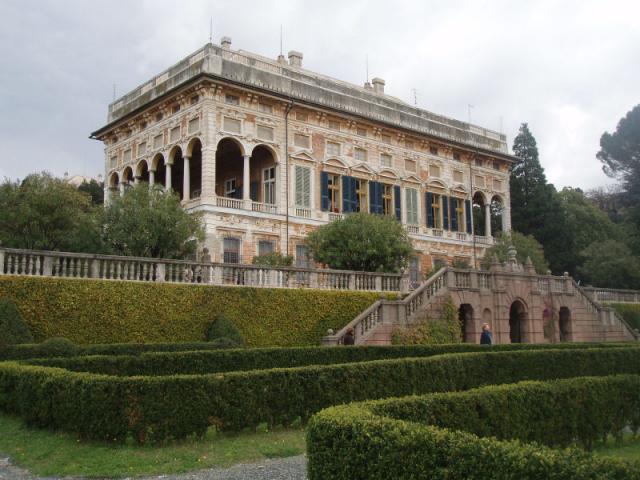

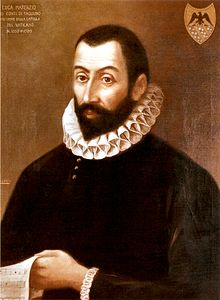

![Die Moorsoldaten [Börgermoorlied; Das Moorlied]](img/thumb/c971_130x140.jpeg?1328359947)
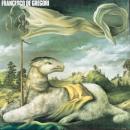
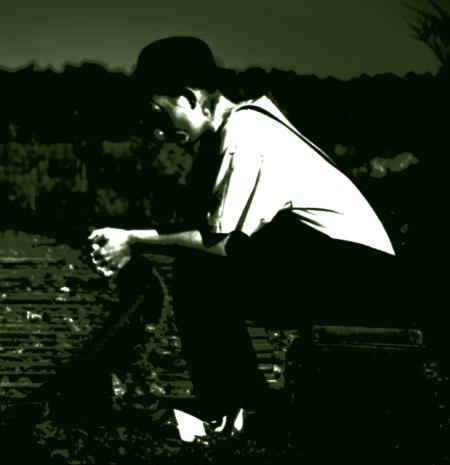

![Chacun de vous est concerné [incl. <em>Canzone del maggio</em> di Fabrizio De André]](img/thumb/c3706_130x140.jpeg?1328479274)
![Chacun de vous est concerné [incl. <em>Canzone del maggio</em> di Fabrizio De André]](img/upl/18025.jpg)


